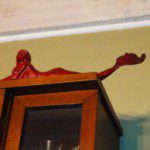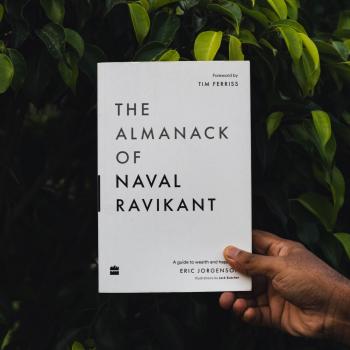 Is it possible that our senses are dulled by our daily routine?
Is it possible that our senses are dulled by our daily routine?
You know, the 9-to-5 rut. For me personally, after working several years at the same job, traveling the same route to work, performing similar tasks each day, I can testify to how easy it can be to walk through life with blinders on. And that’s a problem.
When we don’t expect to see anything different, we miss the small but important changes that take place around us.
I was alerted to this fact the other day, as I sat eating dinner after a long day at the office. My wife asked ne if I noticed anything new. My eyes darted from her hair to her top to the table I ate on. Nothing. She pointed up and I then noticed it. Perched atop the dining room chest was a small wooden statue of a red mermaid. She informed me it had been there for weeks and she had been waiting for me to notice it.
Wouldn’t it be great if we could wake up each day and see life as if for the first time?
It’s an idea that the author Alan Lightman put forward in his book Einstein’s Dreams. In one memorable chapter, Lightman’s Einstein imagines a world where people awake each day to a blank slate. They have no memory of the previous day (or days), so they consult notebooks to uncover the details of their lives.
The notebooks tell them where they work and they go off to jobs that are new and full of promise. When the workday ends, they check the notebook again to be reminded of where they live. They come home to spouses they have never seen before and children they have never met. And with great curiosity, they reacquaint themselves with each other and tell stories about the day’s events.
Once the children are put to bed, the husband and wife talk, not about balancing the checkbook, but “about the stars in the night sky.” They look into each other’s eyes. They learn about each other’s dreams. And each night they fall in love all over again.
If their lives sound full and rich, it’s because they are. In Lightman’s words, “It is only habit and memory that dull the passion for life.” Without habit and memory, they live each day as if it were a new and exciting adventure.
And while it may not be possible to live in Lightman’s imagined world, Thomas Moore believes it is possible to bring the same kind of zest to our own daily existence. In his book The Re-Enchantment of Everyday Life, Moore sings from the same hymn book as Lightman, explaining how we must let go of what we know in order to uncover the new. Moore believes that:
The first step is to recover a beginner’s mind and a child’s wonder, to forget some of the things we have learned and to which we are attached. As we empty ourselves of disenchanted values, a fresh paradisiacal spirit may pour in…we may discover the nature of the soul and the pleasure of being a participant in the extravagance of life.
Because when we go through life as if we have seen it all, done it all and heard it all before, we stop listening and learning. We begin tuning out the small details of life that have the power to surprise and delight us. We miss the nuances that add texture and meaning to our lives, like a red mermaid sitting atop the dining room chest.
The good news: solving our attention-deficit problem is easy. We just need to start interacting with life as it interacts with us.
It starts by making a conscientious effort to live at a slower and more thoughtful pace, open to the people and places and experiences we encounter. We must walk through each day alive and alert, our eyes wide open, looking a little bit longer, listening a little more intently, digging a little deeper to recognize the small but important details that make up our lives.
When we teach ourselves to look past the things we know and expect, we may be surprised. We may find that our lives are richer and full of more interesting and rewarding experiences than we ever imagined. We may notice that the happiness we’ve been chasing or found elusive has been with us all along.
A different and longer version of this story appeared on Contemplative Journal.

















